Helping the Manitoba Organization of Disc Sports research and define user and business needs for a new Ultimate league management platform
Organization
Manitoba Organization of Disc Sports
Role
Project Lead, UX Researcher, UX Designer
Date
2017 – 2018
The Manitoba Organization of Disc Sports (MODS) supports the sport of Ultimate Frisbee by providing opportunities to learn, play, and teach the sport. Founded in 1988, the non-profit organization experienced explosive growth over the last several years and currently supports more than 4,600 athletes in programs every week of the year.
When MODS was considering creating a new Ultimate league management platform, I was asked to shine a light on what would deliver the best experience for their players, captains, and staff.
In just four weeks, I helped conduct a user experience research and strategy project, and used our findings to define the requirements for an effective, usable Ultimate league management platform.
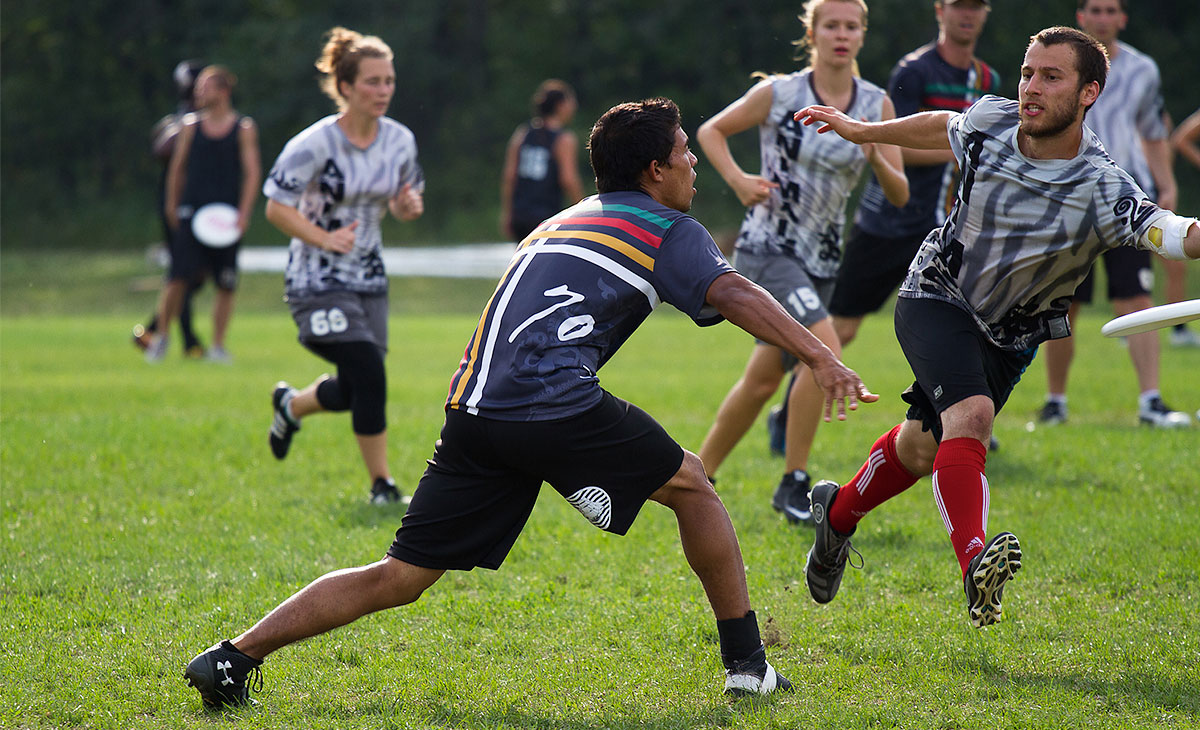
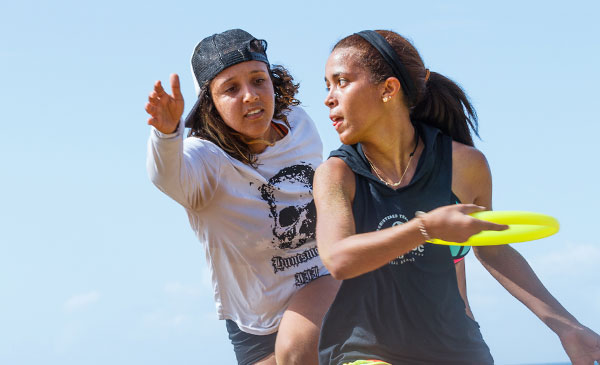
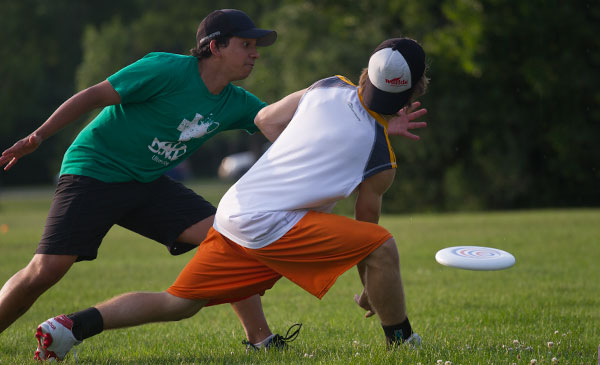
Process
We knew going into this project that the outcomes would be used to put out a call for proposals developing the new platform. MODS had previously considered and rejected a range of existing Software-as-a-Service solutions, and was committed to creating a new platform tailored to their needs.
As a non-profit organization, MODS couldn’t afford to build the wrong thing. It was crucial to home in on the space where the lenses of desirability, viability, and feasibility overlap.
We used a range of human-centred research methodologies to build empathy and deeply understand the needs of MODS’ athletes and staff, while also capturing the business rules, processes, and requirements for running an Ultimate league.
- Discovery
- Methods
- Existing artifact analysis
- Membership survey
- Journey mapping workshop
- User interviews
- Stakeholder interviews
- Field visits
After a project kick-off meeting, we began to explore existing artifacts such as analytics data, membership demographics, and communications between MODS and its athletes.
To get a better understanding of the relationship between MODS and its players, priorities, and pain points, we created and distributed a survey for the MODS membership base. We scheduled a series of interviews with respondants to learn more about their individual stories.
We also performed a site visit at an event location, where we spent several hours observing and talking with players about their experiences and needs.
These activities helped us build empathy with MODS’ players and really dig in to what mattered most to them.
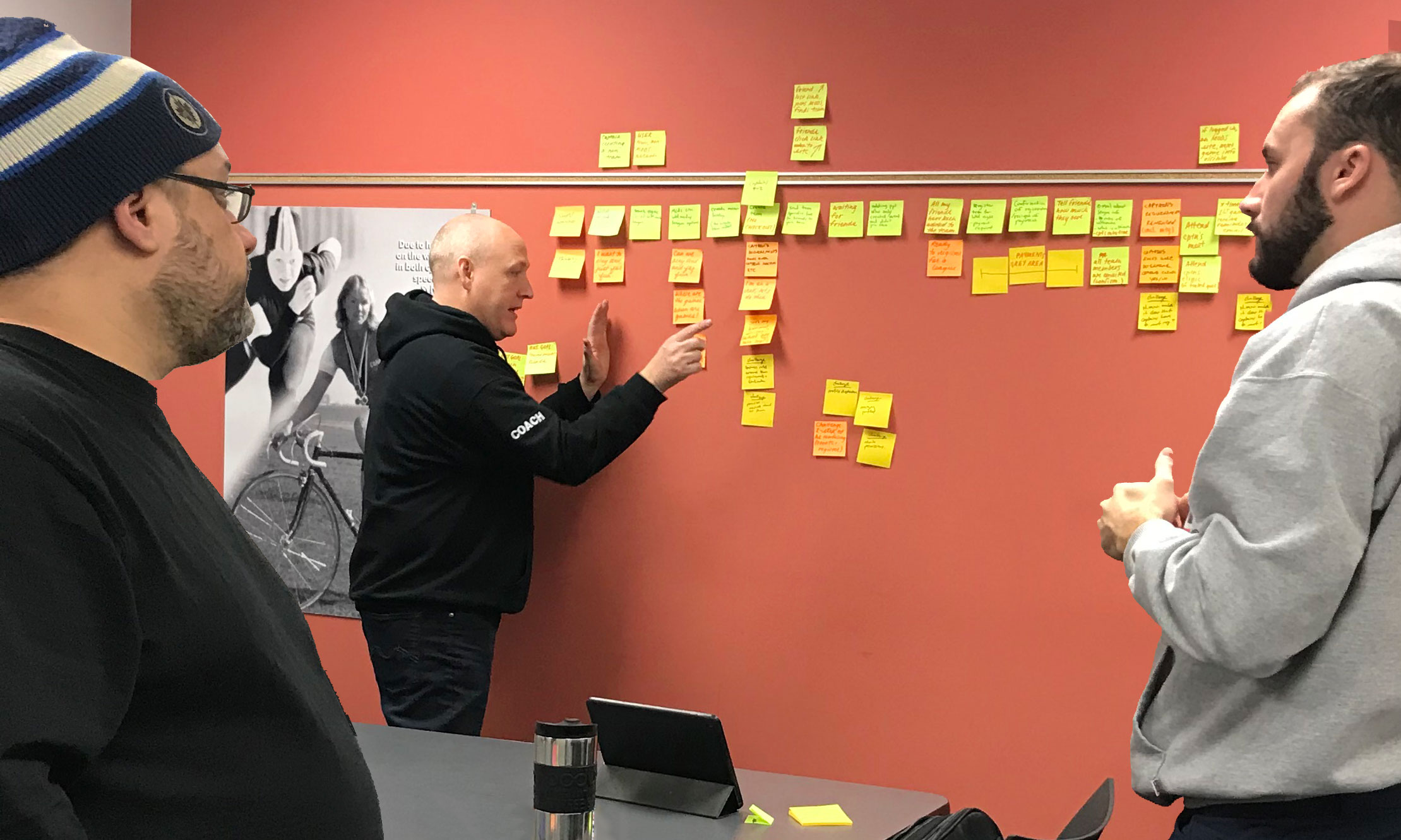
To build a shared context around the user journey and understand what activities take place on the macro and micro level—from events that happen between seasons, to events that happen between games—we held a journey mapping workshop with the project team. This workshop was hugely beneficial for better understanding challenges not only tied to processes and workflows, but the cultural impact that a league management platform can have on its membership.
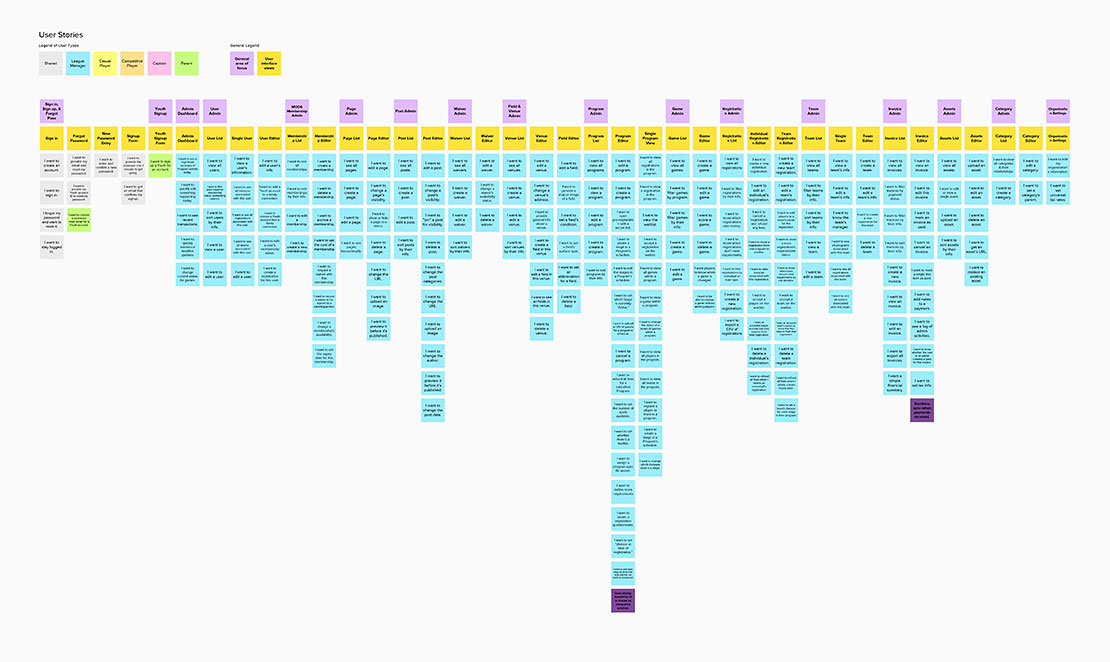
Strategy & Ideation
Methods
- User personas
- Identify themes
- How Might We’s
- Information architecture diagrams
- Mental model diagrams
- User flow diagrams
Throughout our research, we uncovered several very distinct types of players, which we used to create user personas. We also identified a range of recurring themes, which we used to guide the creation of “How Might We” statements to clearly frame our design challenges.
Over the course of a couple of weeks, we acted on insights from our research to create information architecture diagrams, mental model diagrams, and user flow diagrams. These were critical for visualizing a range of complex user workflows for tasks like creating teams, registering for leagues and events, renewing league memberships, and of course, a range of administrative tasks like creating leagues, games, and managing memberships.
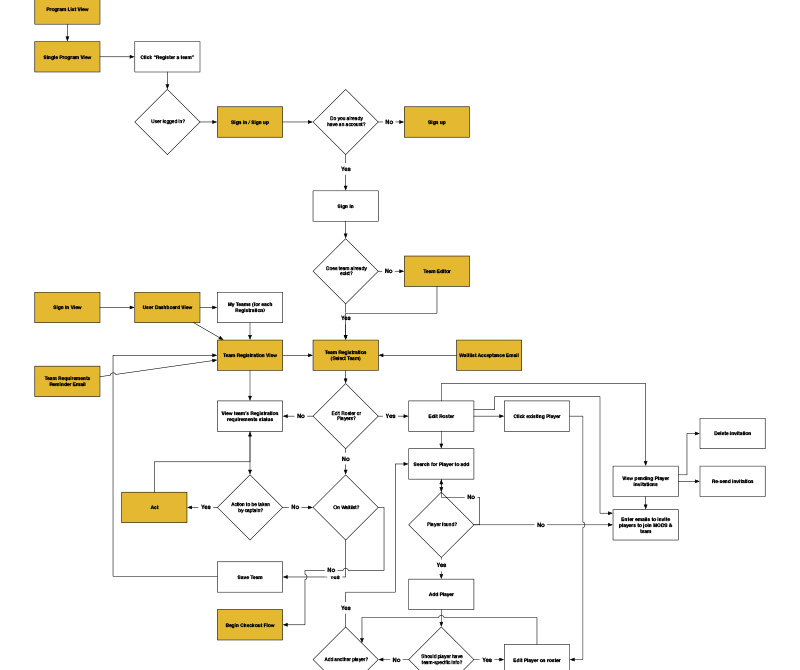
Results
In the final stretch of the project, we fleshed out a comprehensive requirements document that specified the entities, data requirements, interfaces and user flows, and key performance indicators for an effective, positive user experience. We collaborated closely with MODS staff and stakeholders throughout this process.
As a result, MODS was able to issue a RFP and selected a partner for the development of their new Ultimate league management platform.